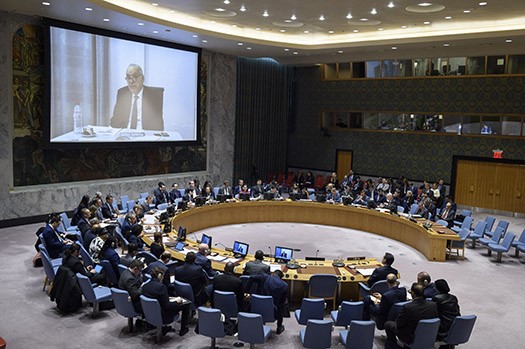On April 4 last year, the commander of the Libyan National Army (LNA) Khalifa Haftar ordered his troops to advance on Tripoli and “liberate it from terrorists.” These orders came ahead of a planned UN conference scheduled for later that month that was intended to bring opposing factions to the negotiating table and avert a military showdown. A blitz that should have taken two days has lasted 10 months, despite every imaginable effort to contain the crisis while avoiding a military solution.
Various stakeholders issued a multitude of statements and joint declarations after the assault, all asserting that only a political solution would resolve Libya’s crisis and threatening to hold accountable any faction that escalated the conflict. But in reality, most of the stakeholders have been playing two fields all along: the diplomatic one, in which they continuously reiterate support for political solutions and UN-led initiatives, and then the battlefield.
On many levels, the conflict in Libya reflects, once again, a divided and polarized international community in a Middle East that is still trying to find its way since the Arab Spring. Despite concerted efforts, and for myriad reasons, the international community has been unable to advance a negotiated peace. Lately, it has been Russian and Turkish influence alone that has moved the needle. Both countries have intensified their interventions on the battleground: Russian Wagner mercenaries are fighting on the frontlines, and the Turkish Parliament has approved the deployment of Turkish forces to support the Government of National Accord. Both countries have also convinced rival parties to commit to a ceasefire and come to the table to negotiate a peace deal. The LNA commander, however, walked away without signing the deal, raising questions about his willingness to end the conflict through a political avenue.
On January 19, world powers gathered in Berlin to discuss how to end the conflict in Libya. Held only few days after the Moscow talks, the long-planned conference had been postposed multiple times, and may not have happened without Russian and Turkish involvement. The parties committed to respecting the arms embargo, stressing its importance, and asserted their support for a Libyan-led and Libyan-owned political process under the UN auspices. Most importantly, they proposed and agreed to mechanisms to monitor the implementation of the conference’s conclusions.
Yet, Libyans themselves were not at the table, and the situation on the ground has remained unchanged. The violence continues, the arms embargo is still being violated, and foreign fighters are waging war on Libyan soil. And when, exactly one week after the Berlin conference, the LNA spokesperson declared that they were not looking for a political solution since they were convinced the solution is through “the rifle and ammunition,” we have to wonder whether a political solution is in fact an illusion.
PHOTO: Ghassan Salamé (on screen), Special Representative of the Secretary-General and Head of the United Nations Support Mission in Libya (UNSMIL), briefs the United Nations Security Council on the situation in Libya on January 30, 2020. (United Nations)

